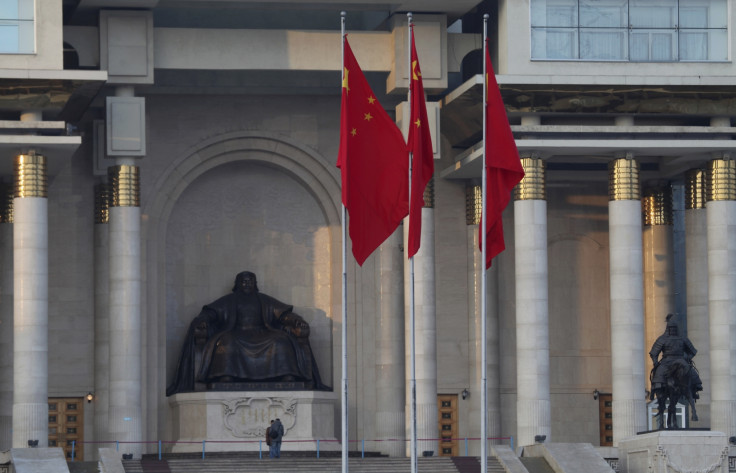Ancient Mongolian City With Christian Temples Unearthed In Russia

Two Christian temples believed to be remains of a 750-year-old multicultural city of Ukek, founded by descendants of Genghis Khan, have been unearthed along the river Volga in Russia.
The temples, which were roofed with tiles and decorated with stone carvings and murals, housed remains of goods stored by merchants, including plates and bottles imported from Rome, Egypt or Iran, according to archaeologists.
After the first Christian temple was destroyed in the early 14th century, a second temple was built in 1330 and remained in use until about 1350. Part of its foundation was unearthed.
The discovery of wealth in the Christian quarter of the city shows not all Christians were treated as slaves.
A Chinese glass hair pin, with a head shaped as a split pomegranate, and a fragment of a bone plate with a carved dragon image show that people of wealth visited these parts of Ukek city, archaeologists with the Saratov Regional Museum of Local Lore told LiveScience.
Ukek was founded a few decades after the death of Genghis Khan, founder of the Mongol Empire stretching across China and Central Asia.
It is believed that his grandson Batu Khan founded the Golden Horde kingdom stretching from Eastern Europe to Central Asia and controlled many of the Silk Road routes.
In 1395, Ukek was attacked and destroyed by a ruler named Tamerlane, who took over much of the territory formerly ruled by the Golden Horde.
Not much is known about Genghis Khan, and this includes his early life and death and what led him to conquer lands. Studies have suggested that a good climate aided his conquests.
But earlier this year, scientists claimed to have found the malarial parasite that caused the conqueror's death around 1227.
© Copyright IBTimes 2025. All rights reserved.





















